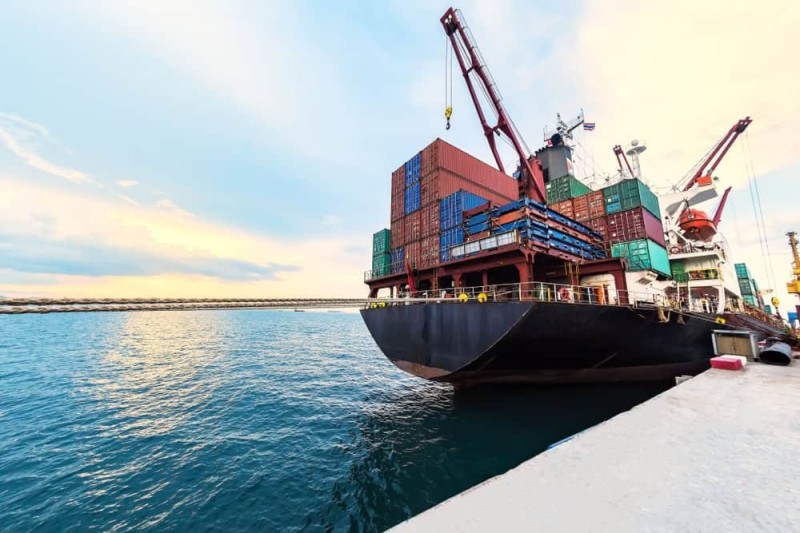
Image credit: More Than Shipping
KUALA LUMPUR: Malaysia needs to adopt a hybrid approach in working its way around the 24 per cent reciprocal tariffs imposed by the US on Malaysian imports.
Public Investment Bank Bhd (PublicInvest Research) said Malaysia should avoid duplicating regional strategies and instead pursue a differentiated value proposition.
"A hybrid approach is needed. Anchoring engagement in strategic US-aligned sectors such as semiconductors, aerospace and the digital economy, while offering tangible facilitation measures like expedited permits and clearer non-tariff barriers frameworks.
"Demonstrating credible regulatory progress in selected areas could give Malaysia an edge in negotiations," it said in a note.
The firm said that ultimately, Malaysia must position itself not just as a trade partner but as a resilient, rules-based supply chain collaborator, complementary, not competitive.
"Asean's experience shows that only countries willing to deliver substance, not signals, will move up the US trade priority ladder."
At the regional level, PublicInvest Research said Malaysia can draw practical lessons from Asean counterparts, though none offer a perfect playbook.
Vietnam, which is hit with the steepest tariff rate at 46 per cent, responded rapidly with "investment sweeteners and deeper cooperation" in strategic sectors.
"Still, US officials have dismissed these moves as insufficient, signalling that optics alone will not earn concessions. Substance, in regulatory alignment and verifiable commitments, matters," it said.
As for Indonesia, the firm said that the country revived talks around broader economic partnership, while Thailand has taken a sectoral approach, prioritising green tech and supply chain restructuring.
"Asean's general posture, negotiation over retaliation, has preserved regional stability but has also revealed differing capacities to adapt," it added.
The firm said that the reciprocal tariffs announced on April 2 marked a renewed and aggressive shift in US trade policy under President Donald Trump.
The tariffs were calculated based on a "crude and controversial" formula that applies the ratio of the US trade deficit with a particular country over the value of its imports from that country.
A week after the tariffs were announced, the administration announced a 90-day pause on its implementation. Key sectors, including semiconductors, smartphones, and selected electronics, have received temporary exemptions.
"However, the evolving scope and criteria for future exemptions remain unclear. In our view, this unpredictability, rather than the absolute tariff level, is the most damaging aspect of the new trade regime," said PublicInvest Research.
For Malaysia, the firm said that the key concern is not just direct exposure but the broader knock-on effects, disruptions in upstream supply chains, cautious investment behaviour, and inventory realignments.
The uncertainty premium is rising, and firms are shifting from growth strategies to risk containment, it said.
"In this fragmented landscape, large, vertically integrated players gain relative advantage, while mid-sized economies like Malaysia face disproportionate external vulnerabilities.
"Market indicators reflect this repricing of risk. Equities declined, US Treasury yields edged higher on inflation concerns, and gold prices rose on safe-haven demand," it added.
PublicInvest Research also said that Malaysia's stance to negotiate instead of retaliating against the tariffs is not only pragmatic but also "strategically consistent" with its broader economic identity.
"Malaysia's industrial ecosystem, particularly in semiconductors, back-end testing, and high-value assembly, is deeply integrated with US firms and acts as a supply chain enabler rather than a threat to US manufacturing.
"This nuance has been central to Malaysia's messaging in ongoing negotiations, which aim to secure product-level exemptions or sector-specific carve-outs based on mutual dependencies.
"We believe that Malaysia's engagement strategy must remain agile. While retaliation is off the table, negotiations should not be one-dimensional," it added.
The firm revised downwards its gross domestic product growth forecast for 2025 to 4.2 per cent from 4.9 per cent previously to reflect a recalibrated baseline that factors in sharper external trade disruptions and lingering structural drags from protracted policy uncertainty.
It said that the downgrade is informed by a comprehensive reassessment of macro conditions, including subdued external demand, weakening sentiment in trade-exposed sectors, and a visible moderation in private investment intentions.
"While the 90-day enforcement pause and exemptions on semiconductors and selected electronics offer some near-term relief, we do not consider these as a turning point in sentiment, but rather a temporary reprieve.
"We believe the deeper issue lies in the breakdown of forward visibility for firms operating across integrated supply chains," it said.
It also forecasted headline inflation at 2.4 per cent for this year.
Source: https://www.nst.com.my/business/economy/2025/04/1204583/malaysia-urged-take-hybrid-path-navigate-us-tariffs

